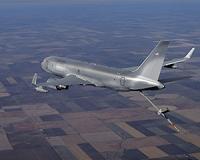| . |  |
. |
Sao Paulo (UPI) Feb 2, 2011 Brazilian President Dilma Rousseff has ordered a comprehensive review of agreements reached in principle with France for the purchase of fighter aircraft, helicopters, warships and technology transfers leading up to the Brazilian manufacture of a nuclear-powered submarine. Rousseff, inaugurated in January after two successive terms in Brazilian presidency of Luiz Inacio Lula da Silva, is showing signs she isn't too keen on exercising power under the shadow of the popular former president. The arms deal negotiated with French President Nicolas Sarkozy in early 2010 was one of Lula's pet projects and promised the recipient of a final contract for at least $6 billion in immediate purchases and several billion more in rolling contracts. Brazilian government comments and Lula's statements following intense French lobbying made the deal appear imminent and France's Dassault Aviation the bidder likely to be favored over rivals Boeing Co. and Sweden's Saab. Before relinquishing office, however, Lula began retreating from previous positions in comments to the media, finally indicating he would leave the eventual government decision for Rousseff. Last month, Rousseff's aides ruled out an early decision, dashing French hopes an early contract could save jobs at Dassault, which hopes to sell its Rafale fighter jet in an intense competition over Saab's Gripen NG and possible Boeing contender F/A-18E/F Super Hornet. This week, the government made plain its intention to cut spending, partly in an effort to contain inflation. Brazil's overvalued real is hurting Brazilian traders, worrying officials that export revenues from both commodity and manufactured goods may be at risk. This week Rousseff criticized both the U.S. administration and China, implying Brazil was a victim of global currency wars. The Folha de Sao Paulo newspaper said Rousseff ordered a review of projected spending over the arms deal amid concerns it would use up cash resources she might spend in other sectors. The plan, outlined with varying degrees of clarity under Lula's presidency, includes Brazilian purchases of 36 fighter aircraft, 11 patrol ships, unspecified numbers of helicopters and other military equipment. Both the aircraft and naval vessels were included in Lula's shopping list as he argued that Brazil's newly found hydrocarbon resources, some more than 120 miles from the Atlantic shore, made Brazil vulnerable to foreign interests with designs on those riches. Potential suppliers for the naval ships include BAE Systems, French DCNS and German Thyssenkrupp, said the newspaper. So far, only the Dassault Aviation and Saab have known to have advanced in the bidding process for the aircraft segment of the proposed deal. Analysts said the delays in final outcome of the negotiations could also be part of the negotiating process, because Brazil has been pushing as top priority the extent of technology transfer it can extract from any future supplier. France has been reported to be most forthcoming, the Swedish Saab less so and Boeing still in a preliminary stage of talks over a jet deal. Brazilian military strategists have interpreted the deal as a step toward developing the country's defense manufacturing capacity. Military aides to the government are wary of entering a deal where Brazil's foreign policy, which favors ties with Iran and support to a Palestinian state in pre-1967 territories, can lead to problems in the lines of supplies. Critics of previous military deals with U.S. suppliers frequently cite problems experienced by Brazil and other Latin American states after defense deals that went sour over political and diplomatic disputes. Brazil is developing a range of defense manufacturing capabilities and is a serious competitor for U.S. and European manufacturers in executive jet, small passenger and transport aircraft markets. Rousseff queried U.S. senators who visited Brazil in January on issues of technology transfer that could improve Boeing's offer. Government sources interpreted the meeting as a prompt to U.S. manufacturers to try harder to satisfy Brazilian expectations on technology transfers. The Boeing Co. says its F/A-18 Super Hornet is a combat-proven strike fighter with built-in versatility. It offers a suite of integrated and networked systems with enhanced interoperability. Rafale has yet to sell outside France. Saab's Gripen NG is an improvement on its JAS 39 Gripen and uses General Electric's F414G engine, itself a development of the engine deployed in Boeing's F/A-18E/F Super Hornet.
Share This Article With Planet Earth
Related Links The Military Industrial Complex at SpaceWar.com Learn about the Superpowers of the 21st Century at SpaceWar.com
 Boeing to revise bid for US military tanker deal
Boeing to revise bid for US military tanker dealWashington (AFP) Feb 1, 2011 Boeing said Tuesday it would submit a new, "final" bid for a $35 billion contract to supply the US military with 179 aerial refueling tankers, as it tries to beat European rival Airbus. A Boeing spokesman said the firm and US Air Force officials held talks Monday to discuss the company's proposal and revisions would follow. "This was our last opportunity to get feedback from the Air Forc ... read more |
|
| The content herein, unless otherwise known to be public domain, are Copyright 1995-2010 - SpaceDaily. AFP and UPI Wire Stories are copyright Agence France-Presse and United Press International. ESA Portal Reports are copyright European Space Agency. All NASA sourced material is public domain. Additional copyrights may apply in whole or part to other bona fide parties. Advertising does not imply endorsement,agreement or approval of any opinions, statements or information provided by SpaceDaily on any Web page published or hosted by SpaceDaily. Privacy Statement |